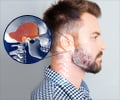
What is Temporomandibular Disorder?
A new study suggests that it may also increase jaw pain resulting from temporomandibular disorder (TMD). Study results are published online today in Menopause, the journal of The North American Menopause Society (NAMS).//‘Temporomandibular disorder (TMD) symptoms are linked with menopause symptoms and manifested differently across menopause stages.’
Tweet it Now
It is estimated that 4.8% of US adults (roughly 12 million people) have had pain in the region of the temporomandibular joint (near the jaw). Some estimates are as high as 15% of US adults who have had at least one symptom of TMD, which is the second most common musculoskeletal pain (with low back pain being first). Women are twice as likely as men to develop TMD, which has led to theories that the disorder is influenced by hormone changes.
To date, there is limited literature about the prevalence of TMD during the menopause transition, although a 2018 study showed that TMD was more common and severe in premenopausal versus postmenopausal women.
The results were not surprising because there are estrogen and progesterone receptors in the temporomandibular joint discs.
In this new study, women were divided into groups on the basis of their menopause stage (late menopause transition, early post-menopause, and late post-menopause) to evaluate differences in the intensity of their TMD-induced pain.
Advertisement
TMD-induced pain and menopause symptoms are primarily correlated in the late menopause transition.
Both diminish with age and progression through the post-menopause phases.In addition, socioeconomic factors such as education and ethnicity also affect TMD symptoms in women during early post-menopause. These results suggest the value of evaluating women for TMD as they approach the menopause transition.
Advertisement
Source-Eurekalert













